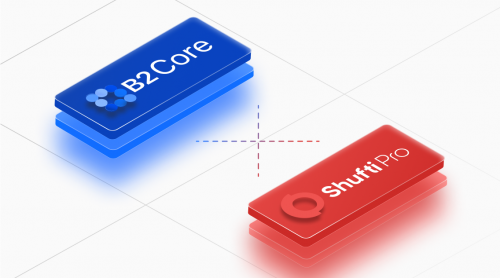Self-Hosted vs Cloud Forex CRM: Which One Should You Choose?
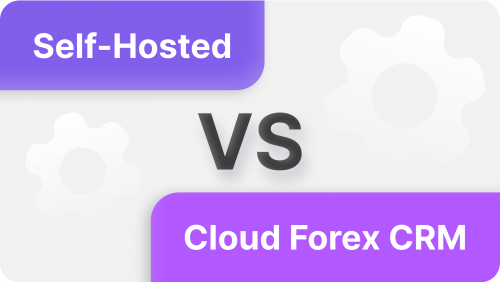
Nowadays, managing customer relationships is fundamental for success in active Forex trading. A Customer Relationship Management (CRM) system becomes an integral part of this process, offering tools to streamline workflows and enhance client interactions.
One of the crucial decisions traders face is whether to opt for a self-hosted or cloud-hosted Forex CRM solution. In this article, we will cover the key aspects of both options, exploring the advantages and disadvantages to help you make an informed decision for your Forex business.
Key Takeaways
- Key functionalities of CRM for Forex brokers include client onboarding, transaction tracking, and customer support tools.
- Self-hosted CRM offers greater control, customisation, and data security but involves upfront costs and maintenance responsibilities.
- Cloud-hosted CRM provides ease of implementation, cost-efficiency, and scalability but comes with dependency on internet connectivity and potential data security concerns.
What is a Forex CRM Software?
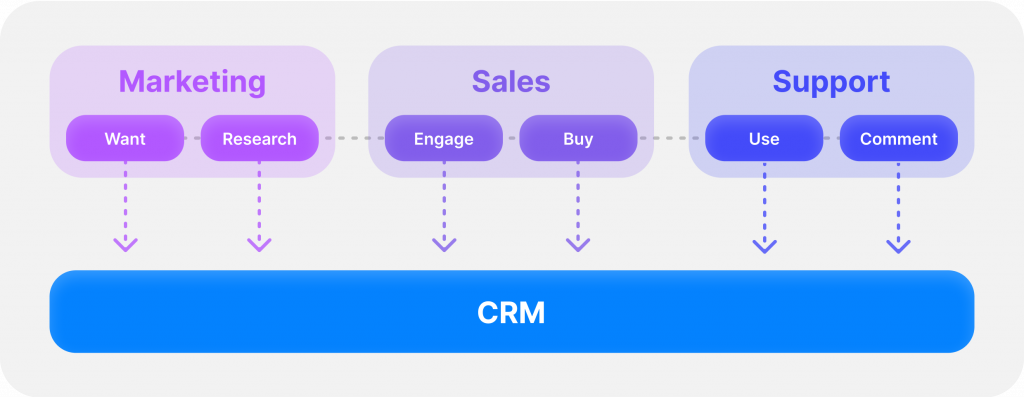
CRM stands for Customer Relationship Management. Therefore, Forex CRM refers to a specialised software or system designed to streamline and enhance the management of customer interactions and relationships within a Forex brokerage or trading platform.
Forex CRM solutions are crucial for brokers to handle client data, communication, and overall customer experience effectively. This system often includes features such as client onboarding, account management, transaction tracking, and customer support tools. By centralising customer information, Forex CRM solution helps brokers gain insights into client behaviour, preferences, and trading patterns.
Furthermore, the Forex CRM system enables brokers to automate various processes, reducing manual efforts and minimising errors. They also facilitate targeted marketing campaigns, allowing brokers to tailor promotions and communications based on individual client needs.
Ultimately, a robust Forex CRM system contributes to increased operational efficiency, improved customer satisfaction, and enhanced regulatory compliance for Forex brokers.
What is a Self-Hosted CRM?
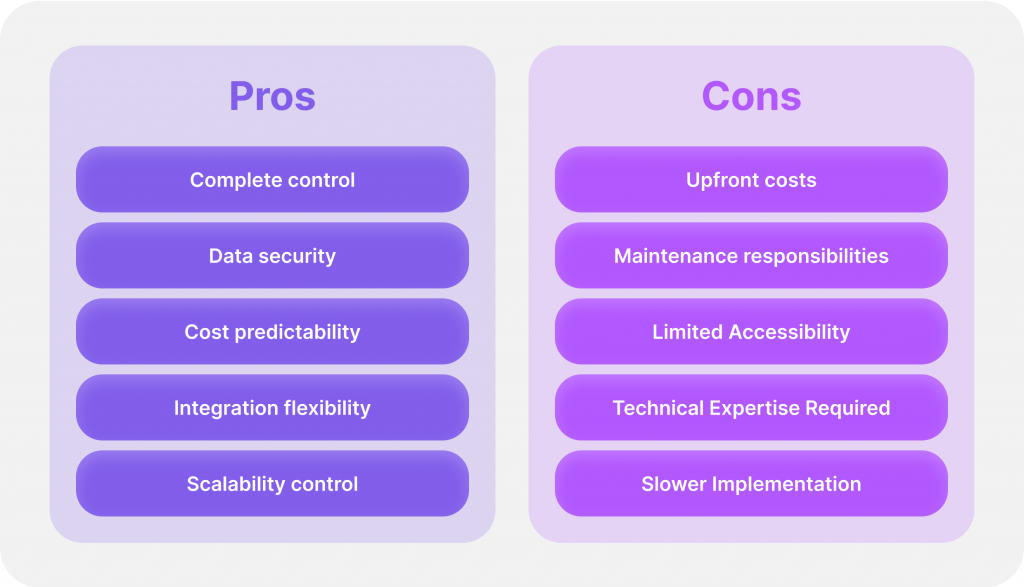
A self-hosted Forex CRM system refers to CRM software that is installed and maintained on the user’s own server or infrastructure. In a self-hosted CRM setup, organisations have complete control over the software’s deployment, configuration, and data storage within their own IT environment.
This approach provides businesses with greater customisation options and the ability to tailor the CRM system to their specific needs. It also allows organisations to maintain ownership and control over their data, addressing potential security and privacy concerns. Additionally, self-hosted CRM systems often offer more flexibility in terms of integrations with other internal systems and applications.
However, self-hosted CRM solutions require a dedicated IT team for installation, maintenance, and updates, which may incur additional costs and technical expertise.
Despite these challenges, some organisations prefer self-hosted CRM solutions to maintain autonomy and align the CRM system more closely with their unique business processes and security requirements.
Advantages of Self-Hosted CRM Solutions:
- Complete Control
- Data Security
- Cost Predictability
- Integration Flexibility
- Scalability Control
Disadvantages of Self-Hosted CRM Solutions:
- Upfront Costs
- Maintenance Responsibilities
- Limited Accessibility
- Technical Expertise Required
- Slower Implementation
What is a Cloud-Hosted CRM?
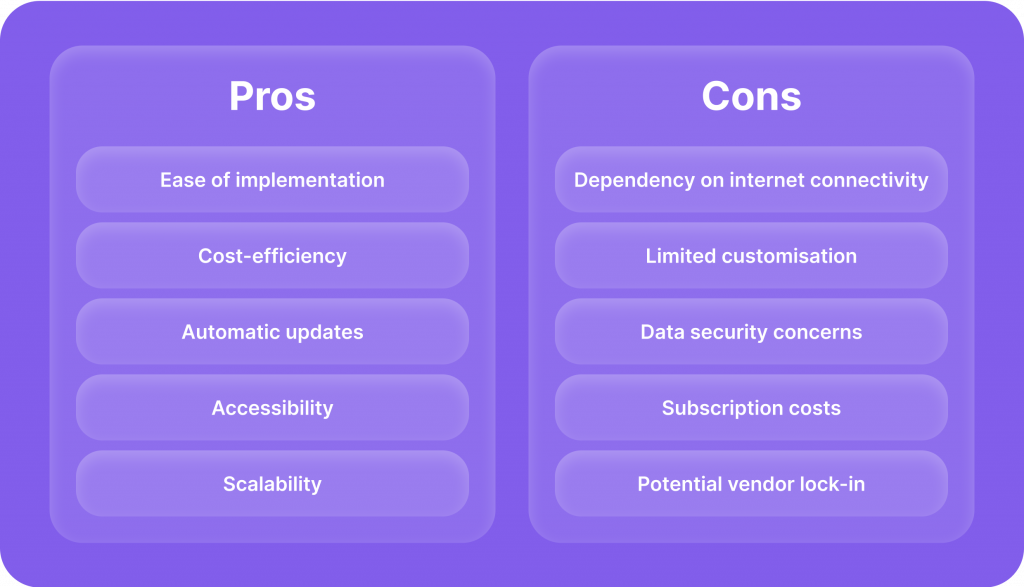
Cloud-hosted CRM refers to CRM software that is delivered and maintained by a third-party provider over the Internet rather than being installed on an organisation’s local servers. In this model, the CRM application and its associated data are hosted on servers managed by the Forex CRM provider in secure data centres, accessible to users via the Internet.
A cloud-hosted Forex CRM provider offers several advantages, including scalability, as organisations can easily adjust resources based on their needs without investing in additional infrastructure. It also provides greater accessibility, allowing users to access the CRM system from anywhere with an internet connection. This promotes collaboration and flexibility among remote or distributed teams.
Additionally, cloud-based CRM solutions typically offer automatic updates and maintenance, reducing the burden on the organisation’s IT staff. The pay-as-you-go pricing model often associated with cloud services can also make it a cost-effective option for businesses, especially smaller ones that may not have the resources to manage and maintain an on-premises CRM system.
Overall, cloud CRM has become a popular choice for businesses seeking a flexible, scalable, and easily accessible CRM solution.
Advantages of Cloud-Hosted CRM Solutions:
- Ease of Implementation
- Cost-Efficiency
- Automatic Updates
- Accessibility
- Scalability
Disadvantages of Cloud-Hosted CRM Solutions:
- Dependency on Internet Connectivity
- Limited Customisation
- Data Security Concerns
- Subscription Costs
- Potential Vendor Lock-In
Choosing Between Cloud and Self-Hosting
When it comes to choosing between cloud-hosted and self-hosted CRM solutions, various factors demand careful consideration. Your organisation’s unique requirements, existing network infrastructure, technical expertise, and budget constraints are fundamental in this decision-making process.
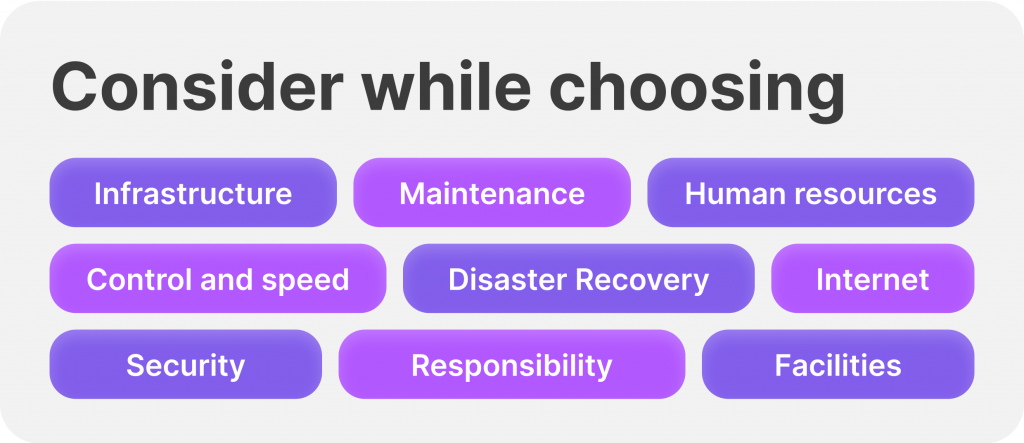
Below, we provide a detailed comparison of self-hosted and cloud-based CRM solutions, guiding you through the key components of each approach, including infrastructure, facilities, human resources, control and speed, disaster recovery, internet connectivity, security, responsibility, and maintenance.
Infrastructure
In the cloud hosting model, the cost is calculated annually based on resource utilisation. On the other hand, self-hosting necessitates a significant upfront investment every 3-4 years for infrastructure and network servers.
Facilities
Cloud CRM comes inclusive of facilities in the hosting cost, while self-hosting requires a secure data centre equipped with power, cooling, networking, and 24/7 monitoring.
Human Resources
Cloud CRM typically includes human resources in the hosting cost, offering a more streamlined solution. Self-hosting, however, involves hiring a highly technical team of system administrators, adding to the overall expenses.
Control and Speed
Cloud hosting offers quick scalability but limited control. Conversely, self-hosting provides complete control, but the infrastructure needs to be purchased, installed, and configured.
Disaster Recovery
In cloud CRM, servers can be configured in different locations, enhancing disaster recovery capabilities. Self-hosting, however, requires different data centres for server installations, potentially complicating disaster recovery strategies.
Internet
Cloud hosting demands a robust internet connection, whereas self-hosting may not require it if utilising an existing intranet, offering a cost-effective and faster alternative.
Security
While security is included in the hosting cost for cloud CRM, self-hosting demands strong physical security measures to safeguard the infrastructure.
Responsibility
Cloud hosting providers bear complete responsibility for their services, reducing the burden on the user. In self-hosting, the organisation is fully responsible for addressing any issues that may arise.
Maintenance
Cloud CRM includes maintenance in the hosting cost, ensuring regular updates and upkeep. Self-hosting, on the other hand, requires ongoing efforts for routine maintenance and software upgrades.
By carefully weighing these factors, companies can make an informed decision that aligns with their specific needs and goals, ensuring a seamless integration of CRM solutions into their operations.
Fast Fact
Two Texans, Pat Sullivan and Mike Muhney, were the guys who invented CRM with their product ACT! Act went through many name changes and acquisitions but is still around today.
Conclusion
After comparing the advantages and disadvantages of self-hosted and cloud-hosted CRM solutions, many Forex brokers are increasingly leaning towards cloud hosting. It offers cost-effectiveness, flexibility, security, and trustworthiness, making it a preferred choice for long-term business success.
However, the ultimate decision depends on your specific organisational needs and resources. Evaluate each aspect carefully to make an informed choice that aligns with the goals of your brokerage business.
FAQ
What is a Forex CRM?
As the name suggests, it is a Customer Relationship Management software designed particularly for Forex Brokerages.
Is self-hosting CRM good?
While self-hosting provides control and data security, it comes with challenges like limited scalability, higher upfront costs, update responsibilities, and reliability concerns
How do you make money from CRM?
Offer your services to businesses looking to implement CRM software solutions. This could include helping them select the right CRM software, customise it to their specific needs, and train their employees to use it effectively.

